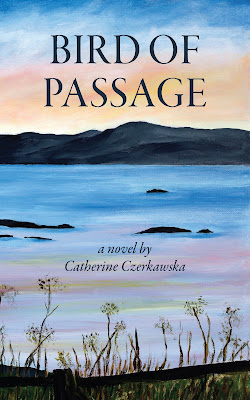 |
| Cover image by Michal Piasecki |
Of all the books and stories and plays I've ever written, I find myself going back to Ice Dancing again and again. It's a love story, but it also tackles a serious and troubling issue that never seems to go away. When I was describing it for publication, I called it a 'very grown-up love story' and that's certainly what it is.
When he was young, my son learned to skate, here in Scotland, and then played ice hockey for a number of years. He only stopped because playing hockey 'just for fun' is difficult in this country, and the demands of school work and his other passion at the time - karate - meant that something had to go, and that something was hockey. He enjoyed it very much, but he knew that it was never going to be a career. Later, living and working in Sweden, he went back to it for a while, as the hobby sport he had enjoyed.
As an adolescent, he had a fine Canadian coach, one who cared about all the kids, whether they were good or not, a coach who commanded the kind of respect that made the parents on the sidelines behave themselves - in short, a model teacher.
At the same time, we were hearing about other kinds of coaches, in this and in other sports. Coaches who were not at all trustworthy. Coaches who would come to give the sport a bad name.
The other day, a nice, kind, trusting person of my acquaintance remarked on social media that she would always trust people when they told her who or what they were. Having grown up in a loving and protective family, I used to feel the same. Unfortunately, life taught me, as sooner or later it teaches all of us, that there are people in the world who tell you only what they want you to hear. And then, when they behave badly, manipulate you for their own ends, you find it incredibly difficult to accept the betrayal. It's not nice to feel that you've been deceived. Not at all nice to surrender at least some of your trust in the innate goodness of people.
I've written about betrayal rather often: sometimes a betrayal of friendship or love, sometimes the terrible betrayal of trust between adults and children.
Many years ago, having had two successful and well reviewed full length productions at the Traverse Theatre in Edinburgh, I submitted a new play which attempted to tackle this kind of betrayal, only to have it turned down. They were quite within their rights, and it may not even have been a very good play - but I was hurt at the abruptness of the rejection when I had worked so hard for them in the past. 'I hope they nurture this new talent' one distinguished theatre critic had written. Some hopes.
I felt that I was surely owed a discussion of some kind. Perhaps questions about why I had wanted to tackle this possibly contentious and uncomfortable subject. None of that happened. What happened was that I got a short, abrupt, almost embarrassed note, saying 'not for us.' After which, I was 'ghosted' by someone I had thought of as a friend before ghosting was really a thing. When I look back on it now, I still find something disturbing about the finality of it. It was as though I had committed a terrible faux pas in writing about something unmentionable.
Year passed, I began to write far more fiction than plays, and eventually I wrote Ice Dancing, set in a small lowland Scottish village - a grown-up love story that was about much more than the central relationship. It was a story that went back to that original play, and its themes, about male athletes in particular and what happened to some of them.
Even then, no traditional publisher was remotely interested, even though they were publishing some of my other novels. So here it is, under my own imprint, and doing rather well.
If you're curious, you can get it on Kindle for a bargain price of 99p for a couple of days!



























.jpg)


